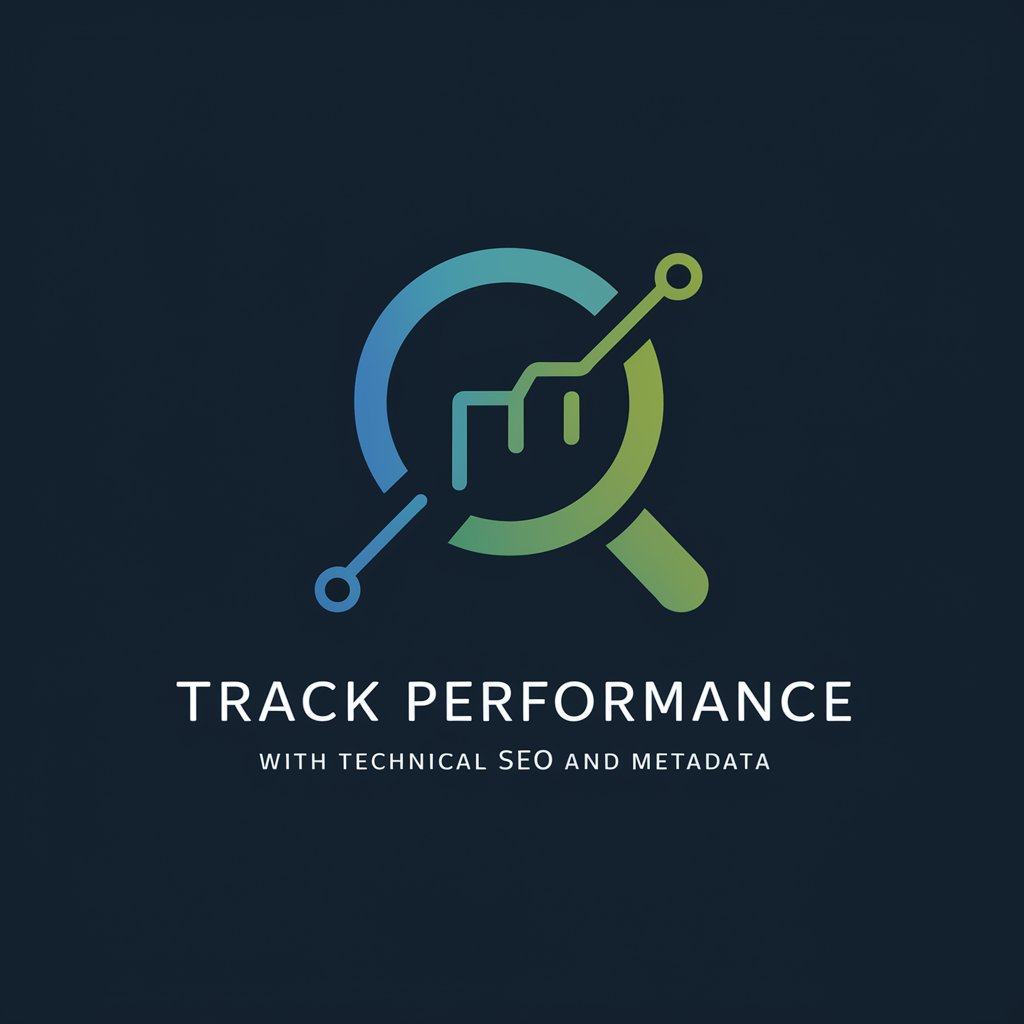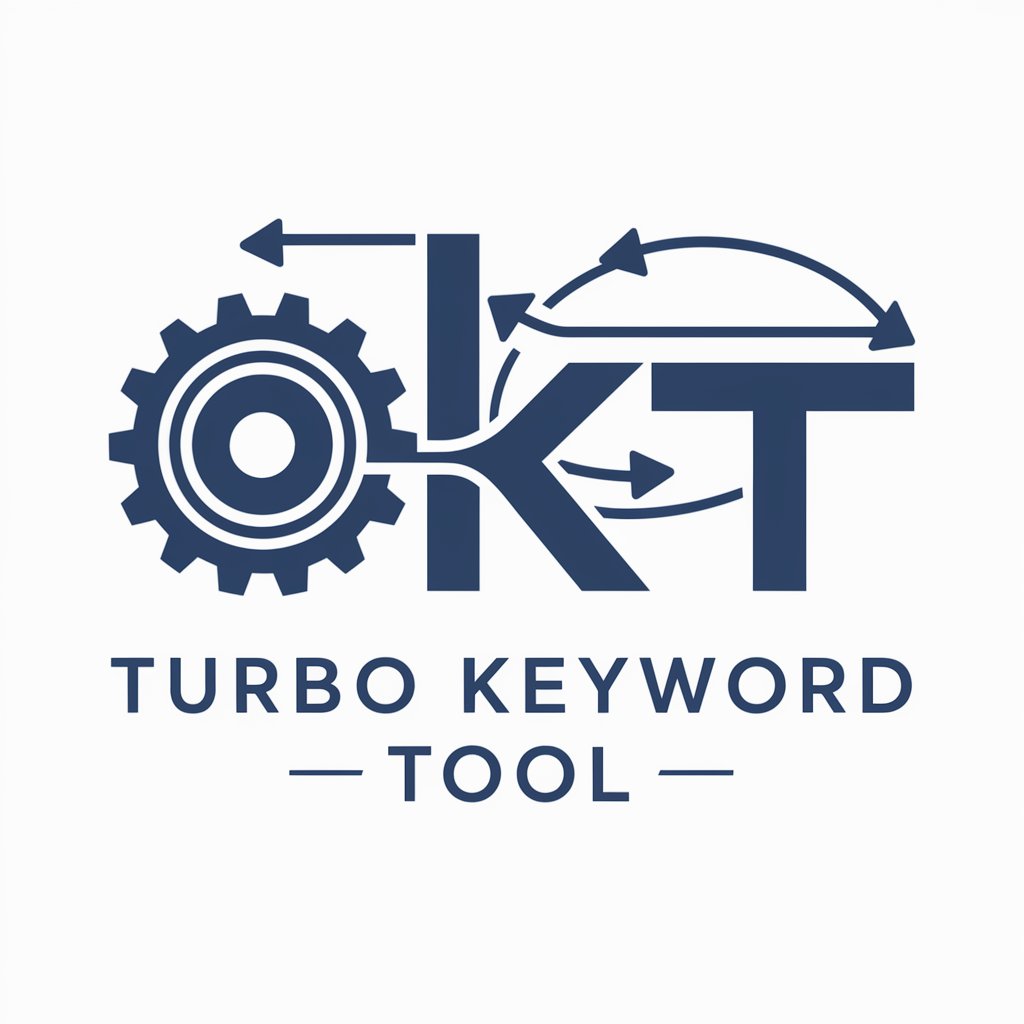Track Performance with Technical SEO is Metadata - Metadata Optimization

Welcome! Let's optimize your metadata for better SEO performance.
Elevate Your SEO with AI-Powered Metadata Optimization
Optimize your website metadata with best practices for improved SEO.
Generate effective meta descriptions and titles that boost search engine visibility.
Enhance your content with SEO-optimized keywords and metadata.
Get personalized SEO advice tailored to your website's needs.
Get Embed Code
Understanding Track Performance with Technical SEO is Metadata
Track Performance with Technical SEO is Metadata is designed as a specialized tool aimed at enhancing the visibility and performance of web content in search engines through optimized metadata. Metadata, in the context of SEO, includes elements like page titles, meta descriptions, and meta keywords that help search engines understand the content of a webpage. This tool focuses on creating SEO-optimized metadata by adhering to best practices in technical SEO, including optimizing character counts, keyword density, and ensuring the metadata is relevant and compelling to potential visitors. For example, if a user inputs a draft of their webpage's meta description, the tool would analyze it for length, relevance, and keyword optimization, suggesting improvements to maximize search engine visibility. Powered by ChatGPT-4o。

Core Functions of Track Performance with Technical SEO is Metadata
Meta Description Optimization
Example
Optimizing a meta description to include primary keywords within a 160-character limit.
Scenario
A user provides a draft of their meta description for a blog post about 'sustainable gardening practices.' The tool analyzes the text, suggesting an optimized version that includes relevant keywords like 'eco-friendly gardening' and 'sustainable gardening tips' within the character limit, making it more likely to catch the interest of both search engines and potential readers.
Title Tag Optimization
Example
Crafting concise, keyword-rich title tags that stay within the 60-character limit.
Scenario
For a webpage selling eco-friendly water bottles, the tool would suggest a title tag like 'Buy Eco-Friendly Water Bottles | Sustainable Hydration Solutions.' This title is optimized for search engines by including keywords and staying within the character limit, making it effective for SEO and appealing to users.
Keyword Density Analysis
Example
Analyzing and suggesting the optimal use of keywords within the content to avoid over-optimization.
Scenario
A business blog has content about digital marketing strategies. The tool would analyze the keyword density, ensuring that essential terms like 'digital marketing tips' are used effectively throughout the content without stuffing, balancing readability with SEO.
Who Benefits from Track Performance with Technical SEO is Metadata?
Digital Marketers
Digital marketers managing various online campaigns can use this tool to ensure that their landing pages, blog posts, and online content are optimized for search engines, leading to increased traffic and better campaign performance.
SEO Specialists
SEO specialists focused on improving website rankings can leverage this tool to refine metadata for enhanced search engine visibility. By optimizing meta tags and descriptions, they can effectively improve a site's SEO score and search visibility.
Content Creators
Bloggers, writers, and content creators looking to increase their content's reach and visibility can benefit from using this tool to make their articles and posts more search-engine friendly through optimized metadata.

How to Utilize Track Performance with Technical SEO is Metadata
Start Your Journey
Initiate your technical SEO journey by heading to yeschat.ai for a complimentary trial, bypassing the need for both login and ChatGPT Plus subscription.
Define Your Goals
Identify and set clear SEO goals for your website or content. Consider what you aim to achieve, such as improving search engine rankings, increasing organic traffic, or enhancing user engagement.
Analyze Your Current SEO Performance
Use the tool to analyze your current metadata, including titles, descriptions, and structured data. This will help you understand areas of improvement.
Implement Recommendations
Apply the tool's recommendations to optimize your metadata based on keyword research, character count, and keyword density. Ensure all changes align with current SEO best practices.
Monitor and Adjust
Regularly monitor your website's performance using the tool. Adjust your SEO strategy based on analytics and feedback to continually improve your search engine visibility.
Try other advanced and practical GPTs
SEO Assistant Pro
Empowering Your SEO Journey with AI

Mondolux Copywriter
Illuminate Your Content with AI Power

SEO Entity Wizard
Elevating SEO with AI-Powered Entity Insights

Social Post
Craft Your Story with AI-Powered Creativity

Forbundsmedlern
Expert Mediation at Your Fingertips

Laptop Sales
Maximize your savings on laptops with AI-powered advice.

XinGPT
Empowering Development with AI-Driven Insights

Software Architect
Architecting the Future of Software Development

Aglo Systems Copywriter
Illuminate Your Content with AI

LaravelGPT
AI-powered Laravel Development Assistant

Turbo Keyword Tool
Unveil Your Niche's Keywords with AI

Frappe Developer
Powering Frappe Development with AI

Frequently Asked Questions about Track Performance with Technical SEO is Metadata
What is Technical SEO is Metadata?
It's a specialized tool designed to optimize metadata, including meta descriptions and titles, for better search engine visibility by adhering to technical SEO best practices.
How can this tool improve my website's search engine ranking?
By optimizing your website's metadata for keyword density and character count, the tool enhances your content's relevance and readability for search engines, potentially improving rankings.
Does the tool provide keyword suggestions?
Yes, it offers keyword suggestions based on your content's context and goals, aiding in improving your metadata's search engine performance.
Can I use this tool for any type of content?
Absolutely. The tool is versatile and can be used to optimize metadata for various content types, including blog posts, academic writing, e-commerce product descriptions, and more.
How often should I use this tool to check my website's SEO performance?
Regular use is recommended, especially after making updates to your website's content or structure. Periodic checks help ensure your metadata remains optimized according to the latest SEO practices.
